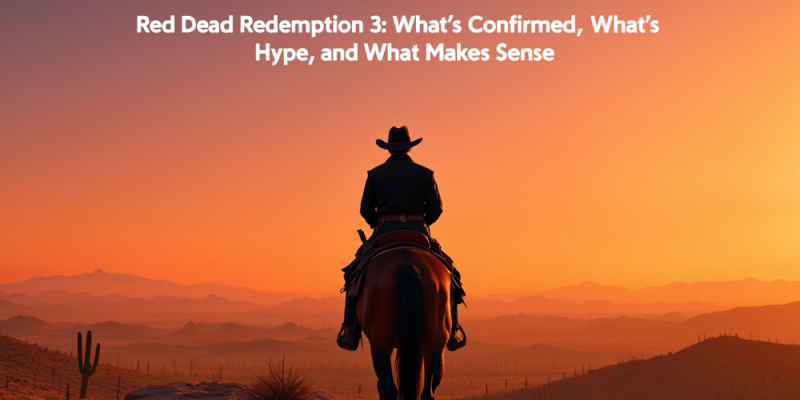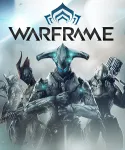Red Dead Redemption 3: What’s Confirmed, What’s Hype, and What Makes Sense
2025-08-15

If you’ve seen chatter that Rockstar has already confirmed Red Dead Redemption 3, you’re not alone. Social feeds and headlines love decisive language, and a few investor-friendly remarks have been spun into a done deal. The truth is more nuanced. There’s a big difference between a corporate leader signaling long-term franchise ambitions and a studio formally announcing a new game with assets, dates, and branding. With Red Dead Redemption 2 cemented as one of the most celebrated open-world epics ever, enthusiasm for a follow-up is completely understandable. Still, understanding how Rockstar and its parent company, Take-Two Interactive, communicate can save you from unnecessary whiplash. In this conversation, let’s separate official facts from hopeful interpretation, look at what has actually been said, and map that against Rockstar’s historical cadence, current priorities, and why patient optimism—rather than certainty—is the best posture for fans right now.
Main Part
Here’s the crux of the confusion: Take-Two’s CEO, Strauss Zelnick, has referred to Red Dead as one of the company’s permanent franchises. That framing means the IP isn’t a one-and-done; it’s a pillar expected to continue generating value across decades. However, permanence does not equal immediate greenlight or public confirmation. In corporate speak, it’s guidance, not a reveal. Official confirmation from Rockstar is typically unmistakable: a press release, a trailer drop, a social post with key art, and follow-up beats on channels the studio controls. None of that has happened for Red Dead Redemption 3. So when you see articles implying “it’s confirmed,” what they’re often doing is conflating a long-horizon statement about brand longevity with a concrete announcement. It’s understandable, it generates clicks, and it travels fast—but it isn’t the same thing as an official reveal.
Timing matters as much as wording. Rockstar is currently centered on Grand Theft Auto VI, a generational tentpole that demands a massive share of the company’s resources. The studio’s development philosophy favors long cycles, heavy polish, and carefully staged marketing windows. Red Dead Redemption 2 arrived eight years after the 2010 original; that kind of runway isn’t unusual for Rockstar. The cadence suggests any next Red Dead chapter would plausibly sit on the far side of GTA VI’s launch and post-launch stabilization. On the technology front, Rockstar’s RAGE engine has evolved dramatically, and a future Red Dead would likely leverage next-gen only features—richer systemic AI, denser simulation in settlements and wilderness, and cinematics threading seamlessly with emergent gameplay. All of that requires time, tooling, and teams that aren’t simultaneously steering one of the biggest releases in entertainment.
It’s also worth sifting the signals fans keep pointing to. Job listings that mention large-scale open worlds, systemic wildlife, and advanced animation are intriguing, but they’re not genre-exclusive and rarely name a specific IP. Trademarks are usually maintenance, not tells. Even the 2023 re-release of the original Red Dead Redemption for PS4 and Switch—welcome as it was—doesn’t foreshadow a sequel announcement; it primarily expands the audience and extends the catalog’s revenue tail. The strongest “evidence” for an eventual RDR3 is actually straightforward economics and reception: Red Dead Redemption 2 has sold well over 60 million units globally, enjoys evergreen sales, and sustains immense cultural mindshare. That profile makes a sequel rational. The missing piece is timing, and Rockstar historically avoids rushing, preferring to commit only when the creative vision, technology, and market window are all aligned.
Conclusion
So where does that leave you today? Confident that Red Dead is a living, long-term franchise—and equally confident that Rockstar has not officially announced Red Dead Redemption 3. The most responsible expectation is this: GTA VI first, then a measured silence as lessons, tools, and teams reposition. If you want to watch for early smoke, keep an eye on Rockstar’s owned channels, unusually specific hiring language that references Western-era research or frontier-era simulation, and regulatory ratings boards—those tend to surface near announcement, not years in advance. In the meantime, the best way to engage the series is the obvious one: revisit the campaigns, explore the re-release of the 2010 classic, and dive into the lore that makes this universe special. The day Rockstar is ready, you won’t need rumor threads to tell you; the reveal will be unmistakable, and it will be worth the wait.




